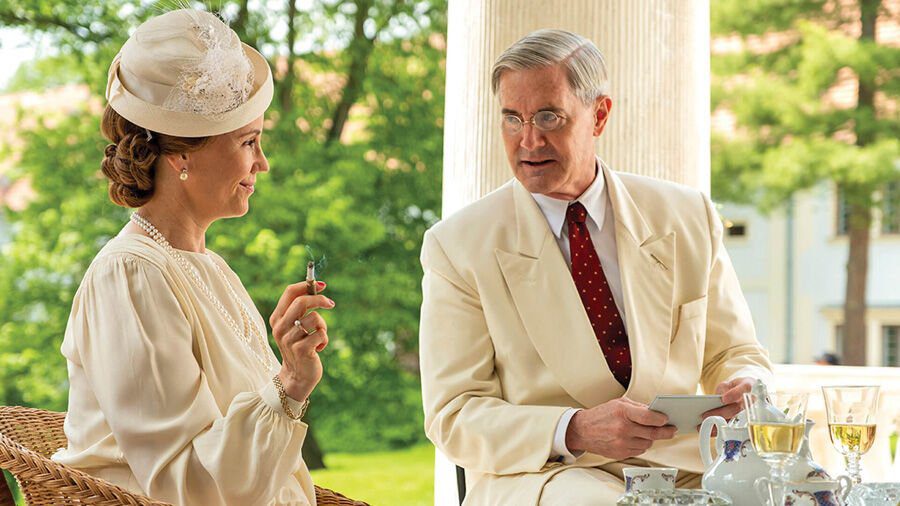I found myself deeply moved by two limited series, one a documentary, one fiction but “based on true fact,” each of which I binged in the past week. Both are about powerful men and the influential women in their lives in the first half of the 20th century, and both illuminate how far we have come and how far we have to go as a society.
“Hemingway” (PBS) is Ken Burns’ and Lynn Novick’s latest. This six-hour in-depth study of iconic author Ernest Hemingway thoroughly explores the writer’s highly disciplined creative process, his larger-than-life public persona, his deeply flawed, often cruel private life, his alcoholism and psychological demons, and inevitably, his gradual deterioration into mental illness caused by various head injuries and most likely genetic inheritance. His life spanned from 1899 to 1961, and this Pulitzer- and Nobel-Prize winner’s output of journalism, short stories and novels began in the mid-1920s and continued steadily through the 1950s. I read all of his works as a young woman and admired them deeply; I wonder how I’d feel today. My children’s generation found his bare bones style easy to parody and he seems to have slipped off the radar as time has gone on. As for his personal life, today, Hemingway the man would be an example of what is known as “toxic masculinity,” metaphorically beating his fists against his chest with his big-game hunting and trophies, his four marriages to women whom he tried to mold into adoring handmaidens, his fishing trips with men-friends and their massive alcoholic intake. Even though the documentary spares no punches—it’s a warts-and-all portrait, for sure—we are left with sadness and compassion for yet another brilliant and creative mind brought low by his demons.
“Atlantic Crossing” on PBS’ Masterpiece Theater is a fictionalized version of a small slice of history that occurred during World War II—the role played by Norway in influencing America to (finally) join the Allies in defeating Hitler. My research shows that the bones of the story seem to be based on fact, even if those facts are exaggerated in the service of drama (as all “fact-based” dramas are, to the horror of historians). In this case it involves the crown prince and princess of Norway, Olav and Martha, who had been on a tour of the U.S. the year before Hitler began his campaign of swallowing up smaller European countries. When that occurred, FDR invited Martha and her children to come to live in Washington D.C. while her husband and his father, the king, established a government-in-exile in London. The eight episodes of this drama cover the war years and what seems to have been a close friendship, even a possible romantic relationship, between the president and Martha. It also covers the very difficult situation Olav was in, having to bow to his father’s wishes for his role in the government, an extremely conservative cabinet-in-exile, his frustration with being held back from being proactive in some way, and, eventually, his jealousy over published whispers of FDR and Martha’s growing intimacy.
As a drama, “Atlantic Crossing” keeps its focus on the prince, the princess and the president and the ups and downs of their lives during this span of time; the war itself is talked about but barely seen, except in actual footage from the war. As such, it drags here and there and I would have preferred to see more of the actual action instead of conversation about the war—condensed, say, into six episodes. Even so, Martha and Olav are played by attractive and gifted actors (Sofia Helin and Tobias Santelmann) whose expressive faces communicate everything that must remain unsaid and their (apparently true) love match. Equally interesting is the connection between FDR (Kyle MacLachlan is slightly miscast—his FDR is much more robust than the actual one in those years—but he does a fine job anyway) and Martha. The script avoids the did-they-or-didn’t-they question, which is probably wise. “Atlantic Crossing” is a Norwegian production; its POV is Norwegian and, as such, we are introduced to yet one more small but important story in the larger group of stories that depict the horrible suffering under Adolph Hitler. Worth watching, for sure.
Note: For those who wanted more “Shtisel” on Netflix, it’s back for another season.

